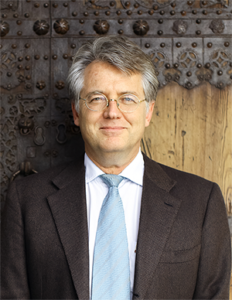On 11th December 2001, China acceded to the World Trade Organization (WTO). This anniversary is not only significant to China, but also to the European Chamber, given that one of the main reasons for our formation was to monitor China’s adherence to its WTO accession agreement.

As China’s economy developed at remarkable speed over the intervening two decades, so did the importance of the Chinese market to European companies, as testified by the Chamber’s growth from 51 to more than 1,700 members over the same period. Our members have demonstrated their commitment to the Chinese market during this time through their tireless work on the Chamber’s annual European Business in China Position Paper, and by making thousands of constructive recommendations on how China can improve its business environment. Simply put, they do so because they need China to succeed.
However, while the first decade of the 21st century saw China embark on significant market liberalisation, on the 10th anniversary of China’s WTO accession my predecessor, Davide Cucino, was already noting that that “momentum towards liberalisation has slowed and ownership restrictions as well as compulsory technology transfer remain in place in key industries, including in sectors where China has now emerged as a global market leader.”[1] So what exactly has changed since then?
Although soon after China’s WTO accession we saw improvement in the reduction of trade tariffs and optimisation of customs processes, some traditional complaints against China are still valid. For example, while China has slowly improved both intellectual property right (IPR) protection and related judicial processes, a significant 50 per cent of respondents to the Chamber’s Business Confidence Survey 2021 stated that enforcement of IPR laws remains inadequate.
Prior to China’s WTO accession, one of the main concerns for the body’s other members had was China’s favourable treatment of its state-owned enterprises (SOEs). Unfortunately, this remains the case today, with the provision of subsidies to these large, and often inefficient, companies leading to market distortions. Furthermore, while China agreed to join the WTO Government Procurement Agreement as soon as possible following accession, its admission offers have so far been rejected as inadequate, with negotiations continuing over the seventh proposal submitted in October 2019.
China has made great progress in recent years with reform of its standardisation system, yet Beijing still falls short of its reporting duties to the WTO’s Technical Barriers to Trade Committee. This is especially the case in technical standards with regard to mandatory standards, technical regulations and conformity assessment procedures, including administrative licensing, which has an impact on market access. The European Chamber, in partnership with the Swedish Institute of International Affairs, has recently published a study on standardisation in China, which explores this topic in depth.
Despite these enduring challenges, it bears remembering that China’s WTO accession took place despite considerable resistance within China at that time, so it would be foolish to dismiss the possibility of a similar paradigm shift. Perhaps what is most important is that the basic principles underpinning the WTO—including non-discrimination, freer trade, fair competition, predictability and transparency, impartiality, inclusion and partnership—should be fully adhered to and not used selectively by any of its member states. As members of the European Chamber, we must continue to advocate these values in our daily work.
I look forward
to continuing to serve you in 2022. I wish you a pleasant holiday season, and
prosperity and success in the new year.
[1] ‘Ten Years of WTO’, EURObiz Nov/Dec 2011, December 2011, viewed 4th November 2021, <https://staticeurobiz.europeanchamber.com.cn/wp-content/uploads/2013/04/EURObiz-Nov-Dec-2011-Issue-5.pdf>


Recent Comments